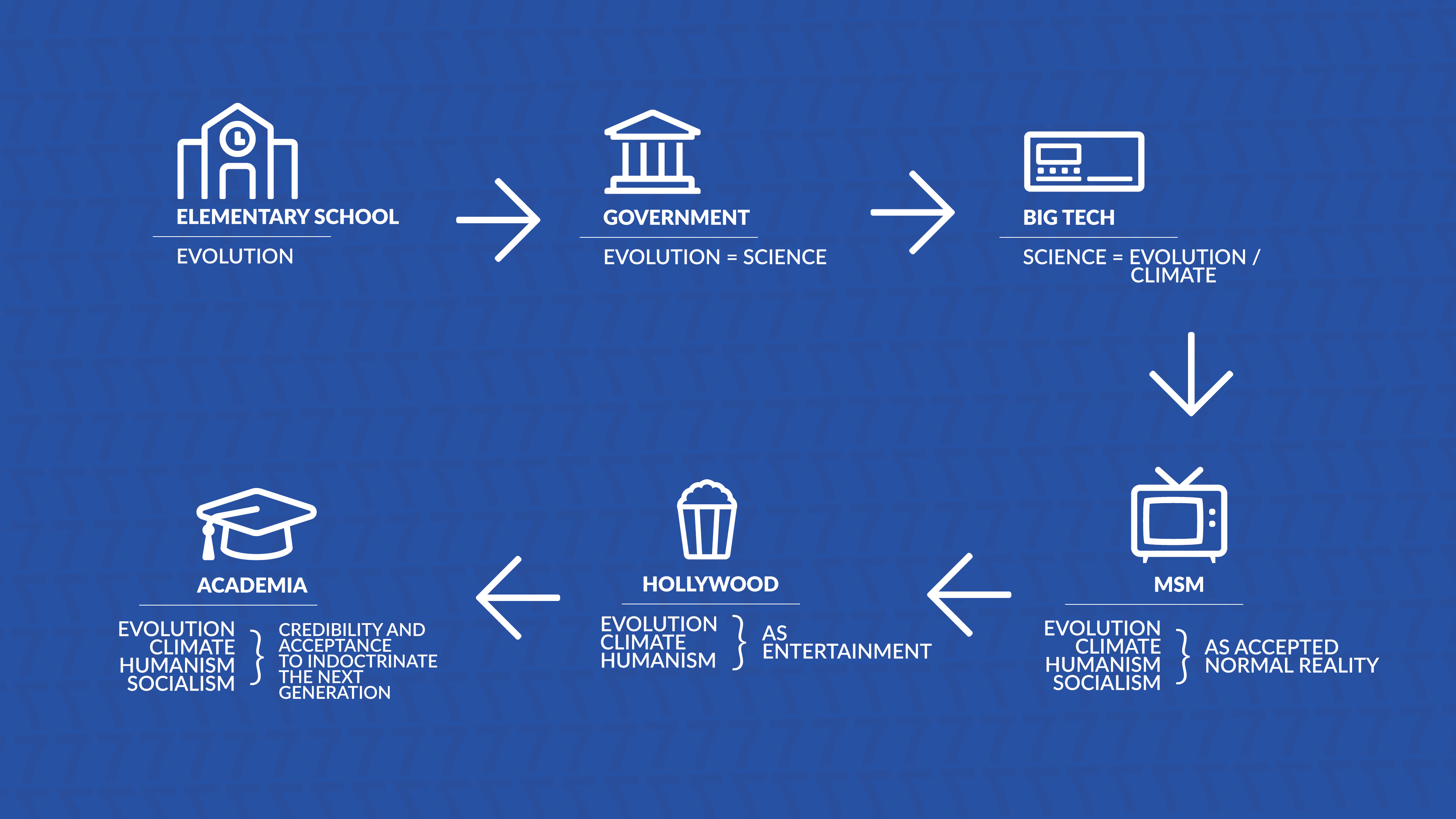Passage #1 – Genesis 1:1
Prelude to the Promise
I want you to imagine a world where the Bible, as we know it, has been taken away. It is, perhaps, the year 2050 AD.
The Government, Big Tech, in league with academia, the news media and Hollywood have entered into a devil's scheme to undermine the veracity and limit access to the Bible as well as shame and condemn those who believe and use the Bible as their spiritual and moral guide for life in this world.

This has been achieved gradually as successive governments drifted to extreme positions setting up leaders who completely embraced policies and agendas that were devoid of any Christian principles. These were aided and abetted by Big Tech and academia who helped formulate, establish and disseminate a new narrative about life and death where God was not considered or even mentioned.
This was relatively easy to do because references concerning God or the use of the Bible were removed from the process of government and as a topic of study by academics decades before.

Once this new life narrative had been set by the primary education and government complex, it was an easy matter for this groupthink to be unilaterally affirmed by Big Tech and obtain message repetition by the news media (for the serious manner of repeating the propaganda) and propagation by the entertainment industry who dressed up the lie so it could be swallowed whole as diversion or emotional comfort. This scenario was neatly rounded out by the peddling of the lie to the successive generations through a corrupted university system.
Now, imagine 30 years of this taking place and arriving at a period in time when interplanetary travel is common, and all communication is digital because there are no more paper books being produced (a great victory for extreme environmentalists).

Oh, there may be some kooks who have stashed books in their attics and there are rumors of hidden bunkers containing thousands of original copies – but printed material is all created, processed, stored and transferred from Quantum Memory Storage Units located in strategic areas of the nation. It is from here that digital information is distributed to a chip embedded in each citizen's brain which is capable of displaying information that the eye sees as a hologram and the ear can detect as sound so that most entertainment, news and distance communication are transferred in this way.
One curious thing, however, in all this wizardly communication, no Bible is archived in the QMSU. This is because it was deemed fanatic and dangerous to the well-being of society and purged along with other controversial material and hate speech. In this regard, the embedded chips were programmed in such a way that they would not receive, transfer or store any material taken from the Bible.
This would be a close version of the utopian and godless world dreamed of in John Lennon's (singer/song writer with the 20th century band, The Beatles) famous song entitled, "Imagine."

In his lyrics, Lennon posits the idea that a peaceful, united, prosperous global community of mankind will only be possible if society removes the idea of God and the practice of religion. His implicit suggestion is that belief in God (and by extension the sustainment of religion by the single greatest resource of religion – which is the Bible) should be eliminated.
The logic is simple: no God, no war... no Bible, no God and thus no war.
Imagine living in a world like the one I have just described? A world of dazzling communication technology but one that has successfully managed to suppress the access to and spread of God's printed Word! In such a world, believers would need to carry with them the essential message of the Bible in an extremely abbreviated format (that is, simple human memory) since, as I mentioned before, the embedded DATA CHIPS would not accept or retain Bible verses.
Of course, the average person would have great difficulty memorizing or accurately remembering the contents of one Bible book (in an attempt to create and maintain faith) let alone memorizing all 66 books that make up the Old and New Testament parts of the Bible. Perhaps 66 books were impossible to memorize, but what about seven? Not seven books but seven passages? Could we find seven passages that encapsulated all 66 books of the Bible?
Seven passages that, if memorized and remembered, would keep the essential message of God's Word intact in one's mind and heart. Seven passages that could explain God's overall plan of salvation, accurately identify Jesus and provide a lost sinner the good news by which his sins would be forgiven and his future glory revealed. Could all of this be done with only seven passages of Scripture?
The futuristic scenario that I have just described is a little far-fetched, even though we can see how some of these things might threaten us given what is going on in our society today. Who knows? Future generations of believers may have to struggle with similar issues in the decades to come. In the meantime, allow me to use this imagined introduction to establish the basis for a brief study entitled, "The Bible in Seven Passages."
If, for any reason, we had to memorize key passages in order to keep the overall message of the Bible alive in our minds, these are the seven passages I would recommend and why.
Genesis 1:1 — Foundational Verse
In the beginning God created the heavens and the earth.
- Genesis 1:1
If Genesis is the foundational book of the Bible, then verse 1 of Genesis is the foundational verse of Genesis. The Bible is the most produced book in history, the most read book in history, therefore verse 1, where most people begin to read even if they do not finish, is the most read verse in the Bible, in history, in the world.
...if a person really believes Genesis 1:1, he will not find it difficult to believe anything else recorded in the Bible.
- Henry Morris, in The Genesis Record (page 37)
This verse does not try to prove the existence of God, it merely assumes it. Of course, it was written before any disbelief occurred, before any false system of belief to reject God was developed so it does not attempt to prove a self-evident fact.
However, this verse does contain the information necessary to refute all of man's subsequent false ideas about God and the creation. It is as if God knew what man (fallen because of sin) would ultimately think up to deny God and so in the very first verse of His message to mankind God preempts any possible false ideas about Himself.
7 Main Philosophies Refuted by Genesis 1:1
- Atheism says there is no God.
- Genesis 1:1 says that God created the heavens and the earth.
- Pantheism says that everything is God. The trees, rivers, stars, etc. Pantheism is a form of thinking where people deify nature or give nature a force of its own.
- Genesis 1:1 says that God is separate from His creation, He is not part of it. He existed first and then He created the world. He is before and after it.
- Polytheism teaches that there are a multiplicity of gods. The Greeks, Romans and nearly every ancient people as well as many of the primitive peoples today (Africa, South America, etc.) are polytheists.
- Genesis 1:1 says that only ONE God created all things.
- Materialism is the basis for most modern thinking. It says that matter is eternal and that matter is the only thing that exists. Communism was based on materialism with its main idea being how to distribute it equitably.
- Genesis 1:1 says that matter had a beginning. At some point it did not exist and then God brought it into existence.
- Dualism, an ancient idea developed into different systems by Plato and later Descartes. Basically, it says that there are two powers at work in the universe (good and evil) and that the interaction of these two is responsible for all of what we see (Hinduism also explains the beginning of the world as the interaction of two entities).
- Genesis 1:1 states that everything we see was created by only ONE power: God. The Bible accounts for evil, but evil is never at the same level as God. There is only one supreme power at work according to Genesis and it was manifested at the very beginning.
- Humanism teaches that man is the ultimate reality; there is nothing higher or nobler than man. Many good works are done to benefit mankind, and they're done because of people who hold to this philosophy.
- Genesis 1:1 refutes this idea because it teaches that God, not man, is the ultimate being since He was here before man and that God is the creator of man, and not the other way around.
- Evolution, our most prevalent idea today, says that the effect of time and chance interfacing with eternal matter is responsible for the universe.
- Genesis 1:1 says that in the beginning (specific time), God (not chance) created it (not evolution), the heavens and the earth.
7 Theories that are Destroyed by Genesis 1:1
- Naturalism teaches that all is matter, but Genesis teaches that God created matter.
- Deism says that God created things and then was not involved, Genesis goes on to describe God's involvement with mankind.
- Agnosticism (supposing that we can't know) is destroyed by Genesis 1:1, because we do know. The Bible tells us what has happened to create the situation that the world is in.
- Monism, which teaches a genesis without God (everything just happened). Genesis, however, doesn't say that everything just happened. Genesis teaches that God made these things happen.
- Determinism says it's all fate. Genesis 1:1 doesn't talk about fate, it talks about a deliberate, willful action. God created the world.
- Pragmatism teaches that whatever works is what is best. Genesis 1:1 says God willingly created something objectively, which is the creation.
- Nihilism - simple might makes right. Genesis demonstrates that God's might is what created the world.
All of these various human ideas are different ways to deny the simple truth of Genesis 1:1 and replace it with a man-made idea.
The Words in Genesis 1:1
We will save the phrase "in the beginning" for later when we will discuss the age of the earth.
God
The Hebrew term "Elohim" stresses the majesty and omnipotence of God. It is a plural noun (gods) but used in a singular fashion in this verse. This immediately suggests the dynamic nature of God who is at the same time one yet more than one, somehow.
Created
The word created refers to the unique work of God, never used with humans as the subject. The word means to call into existence from nothing. Man "forms" or "fashions," but only God "creates." The whole system of faith rests here: either random particles which always existed, generated by themselves a more complex, orderly universe and then graduated to intelligent beings capable of applying and developing intelligence (i.e. the same matter that made a rock made you); or God created it. This is the choice we have to make.
Heavens
This does not refer to the stars and planets but to the space where these are situated. When we refer to our existence, we talk about the "space – mass – time" universe, the basic components of our existence. These "heavens" would refer to the space component since the time component has been introduced (in the beginning) and the mass element is about to follow. No word is used in the Bible to express this idea of space and so the term "heavens" is used, as in the idea of expanse or universe.
Earth
Again, there is no word in the Bible that refers to "matter," so Moses uses the term earth (land) which describes the creation of the next basic component which is matter (not yet shaped or formed but now in existence).
In the Beginning
I have said that the universe is a combination of the elements of space, matter and time. Science teaches that each of these elements is necessary for the universe to have a meaningful existence:
- If there is space and time but no matter, then the universe is empty and nothing happens.
- If there is matter (which includes energy) and time but no space, there is no movement, just one big mass. Space is needed.
- Time is the third and most important component because it permits perception of the matter and space. Genesis 1:1 says that the element of time was called into existence along with space and matter to comprise the time-space-matter continuum which we call the universe.
Now, Genesis says that this time-space-matter component was not yet formed. The following verses go on to explain how God fashioned the raw materials of creation into the universe that we now see.
Some authors say that verse 1 is the title of Genesis or a summary of events, but as we said before, the summary of Genesis 1 is given in chapter 2:4.
This is the account of the heavens and the earth when they were created, in the day that the Lord God made earth and heaven.
- Genesis 2:4
- Also, all the other sections of Genesis have no titles, only these summary statements showing the end of a particular generation.
- So, the first act of the first day of creation was the bringing forth the building blocks of the universe, the time-space-matter elements.
If you were translating Genesis 1:1 into modern scientific English, you could say,
The transcendent, omnipotent Godhead called into existence the time-space-matter universe.
With this one verse committed to memory, all of these related ideas are stored as well. In the next chapter we will examine the passage that sets the overall theme and explains what the Bible is all about.





